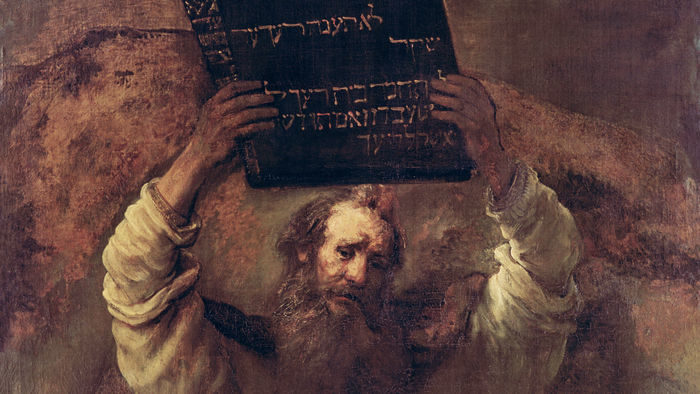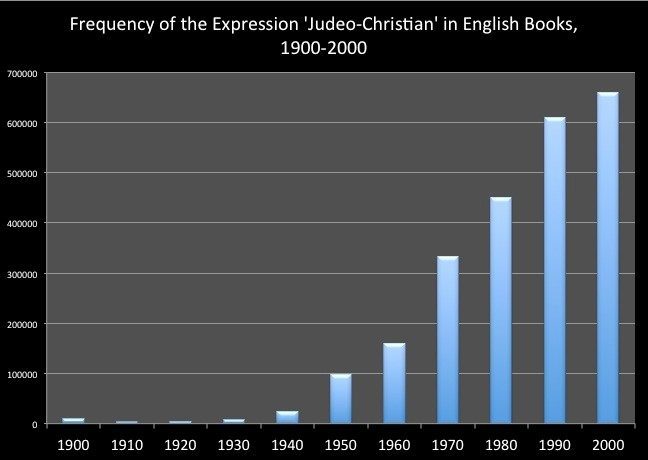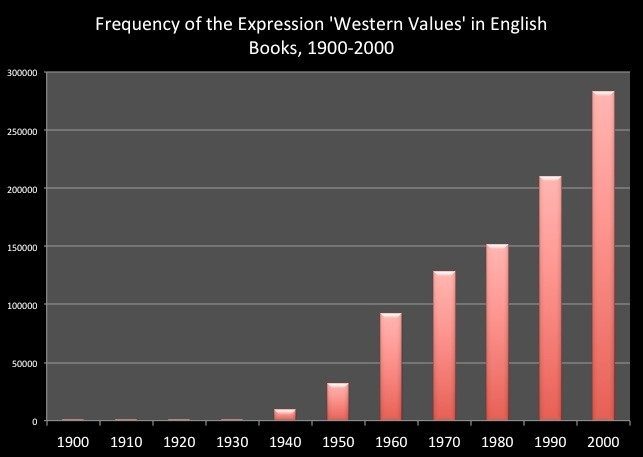I'm almost half-way through the book and I think what I appreciate most so far is the moral and humanitarian stance he's taken to the subject. Shahak was not only writing for the general public by taking the tone of an educator, but was also trying to get Jewish people to think on Zionist policies and what they are, in large part, informed by. As a holocaust survivor who served in the Israeli army and who was a lauded teacher of chemistry in Israel - he must have been a difficult person to attack head-on.
Yes, I think Shahak is a thoroughly decent person and he is appalled at this "branch" of Judaism that took over and has oppressed the rank and file of Jews.
What puzzles me is the 300 year gap he mentions between about the time that the Talmuds were finished up and the appearance of the "Classical Judaism" he refers to as then transforming into this sex cult.
Talmudic Judaism certainly wasn't a sex cult. It wasn't exactly Biblical Judaism either, but it was closer to the latter than the former. Talmudic Judaism was Judaism without the Temple.
Another interesting item is the Talmud's rant about somebody named "Jesus". I read an entire study on this some years ago and, apparently, the evidence points to the fact that there was a radical person named "Jesus" who was stoned somewhere by the Jews - I'll have to look it up - but he wasn't the "Jesus" of the NT. Well, perhaps he was one of those persons who was conflated into the Jesus of the NT.
Shahak remarks that Biblical Judaism was a religion for peasants, for people involved in agriculture, but by the time they come into view again, there are no Jewish peasants at all. It was mentioned that what is seen in Cabbala is pretty much Gnosticism run amok. Perhaps. And perhaps that is a clue as to the origin of this business and why, at the end of it, there were no Jewish peasants? Perhaps Cabbalism grew and developed in Alexandria and from there, made its way to Spain, and was transferred from Spain to the Khazars and then "Classical Judaism" was developed? Meanwhile, the rank and file of Jews either remained in Palestine, later to convert to Islam, or emigrated elsewhere and were assimilated?
Okay, I found the reference and it references the "Teacher of Righteousness" of Dead Sea Scrolls fame from my as yet unpublished book about Paul:
***
The Teacher of Righteousness was someone to whom God had made known all the mysteries of the prophets, and who had been severely persecuted. In view of this,
Wells discusses Talmudic references that point to a Jesus who was killed by the Jews in Lud (Lydda) by stoning,[1] and not by the Romans in Jerusalem by crucifixion. In the Gemara, the body of commentaries on the Jewish codification of Law called the Mishnah,
Jesus was said to have been persecuted by King Alexander Jannaeus:[2]
The Gemara sums up Jesus’ activities by saying (Sanh. 43a) that he ‘practised magic and deceived and led astray Israel’. This man who learned magic in Egypt and scratched charms on his flesh has little resemblance to the gospel Jesus. ... The passage goes on to explain the incident, ‘When king Jannaeus put the Rabbis to death, Rabbi Joshua b. Perahiah fled to Alexandria but later … came back …’ (Sotah, 47a and Sanh. 107b). The persecution of the Pharisees under Jannaeus is well attested. Löw [1858] thought that the Jesus of the Talmud fled into Egypt during this persecution, learned magic there, and later founded the Essene sect, which he says, is named after him. [1]
In sum, if the early Christians were not followers of the gospel Jesus but Jews who believed that the Messiah, named Jesus, had come and would return, and who were otherwise orthodox, keeping the law and attending the temple, then the silence of the rabbinical literature about Jesus and about Christians up to the end of the first century, when the decisive break occurred, is quite intelligible; whereas if there was a historical Jesus who had the career ascribed to him in the gospels, it is not.[3]
This idea is particularly interesting in view of Birger Pearson’s work
Gnosticism, Judaism, and Egyptian Christianity. Pearson adduces new support of Moritz Friedlander’s[4] idea that
gnosticism is a pre-Christian phenomenon originating in anti-Law Jewish circles in Alexandria. That is, gnosticism arose among Jews who were exposed to Middle Platonism, but also influenced by the events of their times, i.e. the political facts on the ground, and the evident failure of the promises of their god[5]:
This hermeneutical principle can be described as one of revolt. In the Gnostic reinterpretation the God of Israel, the God of history and creation, is demonized; the Creator and his creation are considered to be the product of a tragic fall within the divine realm; and humanity is seen to be a part of the transcendent God imprisoned by hostile powers in an alien environment. Inasmuch as the Gnostic synthesis reflects the use and reinterpretation of Jewish scripture and tradition, it is apparent that the Gnostic phenomenon itself originates in a Jewish environment as an expression of alienation from (“orthodox”) Judaism.[6]
Glen Fairen is even clearer on this, pointing out the
close similarities not only between the Qumran and Nag Hammadi texts, but also between these “Judeo-Christian” texts and the surrounding literature of Ancient Near and Middle East (for example, the Greek
Asclepius, Egyptian
Potter’s Oracle, and Persian
Zand-I Vohuman Yasn apocalypses).[7] So-called gnosticism only developed the apocalyptic themes further, using their own internal, Jewish logic. Fairen’s definitions make it crystal clear:
Ancient Near and Middle Eastern, scribally written protest literature which focuses on the loss of native kingship and expresses a phantasmagoric rectification thereof, particularly in terms of cosmic symbolism syncretistically redeployed from Ancient Near and Middle Eastern cosmologies.
Gnosticism(s): An analogous expression of Ancient Near and Middle Eastern apocalypticism where, under the domination of a hegemonic foreign power, there is a belief in the inability, or lack of desire, of the titular national god to instigate an apocalyptic resolution. Hence, gnosticism – as an expression of the inherent tension within an ontological system that postulates a good deity with a corrupt world – recasts notions of “as above, so below” so that where once the wrong king would be replaced by the right god, it now is reconfigured so that the wrong king must reflect the wrong or illegitimate god in heaven.[8]
In other words, they are political texts, as much as they are reiligious, reflecting the idea that when a god’s true representative is in power, all is good. The chaos of foreign rule, in contrast, necessitates a divine re-ordering, where god’s rule is brought back. This was the outlook of the Jewish rebels.
Later on the “gnostics” concluded that it wasn’t just foreign rule – it must be that the wrong gods were in charge; understandable, after centuries of foreign rule, and two failed rebellions that resulted in national catastrophe.
There are a number of striking parallels between some of the Nag Hammadi texts and the texts of Qumran. This suggests strongly that similar speculations were under way both in Alexandria and in Palestine, and one wonders where they began.
Is the Talmud correct that the origins were in Palestine in the time of Alexander Jannaeus? Or later, when Pompey destroyed the nationalist dreams of the Jews by taking Judea under Roman control?[9] Or was it simply a constant, receiving fresh inspiration with each new, corrupt foreign ruler?
The Hellenistically inspired exegetical activities[10] of the two groups advanced in different ways:
for the Gnostics, Yahweh/Jehovah became a demon of sorts, and for the Qumran community, one only needed to apply more and better Pesher-izing[11] to get the right combination and understand what was going on and how God and his Messiah would set things right. This is interesting in view of the fact that the Gnosticizers tended to reject the Old Testament (even if they based their myths on it), while later Christian orthodoxy – like the sectarians at Qumran – retained the Old Testament in rejection of the gnostics and later Marcionites, while rejecting its theology in favor of Christ.
In any event, the Dead Sea Scrolls show that the memory of their founder was treasured a long time after his death. Ellegård proposes that visions of this teacher – long dead – convinced members of the Qumran community and other groups of Essenes throughout the Empire that he was preparing to return to Earth along with the Hosts of Heaven, for the last judgment. Paul, it seems, may have taken this further and become convinced that the Teacher was a supernatural being who, like the character in the Wisdom Literature, had sought an abode on Earth, was rejected, and returned to Heaven. Further on, I’m going to propose a variation on this idea.
Overall, the descriptions of the Essenes written by Philo of Alexandria around 20 AD, and later by Josephus, suggest that they were a much more open and innovative group than
what the Dead Sea Scrolls say about the xenophobic Qumran community. Perhaps that was because the Qumran group were closer to the scene of the political action and had become radicalized into Zealotry.
[1] Sanhedrin (43a): “Jesus was hanged on Passover Eve. Forty days previously the herald had cried, ‘He is being led out for stoning, because he has practiced sorcery and led Israel astray and enticed them into apostasy. Whosoever has anything to say in his defense, let him come and declare it.’ As nothing was brought forward in his defense, he was hanged on Passover Eve.” That is to say, his dead body was hanged on a gibbet after stoning.
[2] Sanhedrin (107b), cited by Wells,
The Jesus of the Early Christians (Pemberton, 1971), p. 200.
[3] Wells (1971), p. 202.
[4] Austrian theologian; born in Bur Szt. Georgen, Hungary, 1842. See
FRIEDLÄNDER, MORITZ - JewishEncyclopedia.com
[5] The failure of the independent Jewish kingdom of the Maccabees which lasted about 100 years and was brought to an end by Pompey in 63 BC.
[6] Birger A. Pearson,
Gnosticism, Judaism, and Egyptian Christianity (Fortress Press, 2006), pp. 37–8.
[7] While “apocalyptic” is usually considered an exclusively Jewish genre, it is not, as these texts show. They all share the following thematic characteristics: prophecy after the event (retrojecting the current political situation into past prophecies), a nostalgic view of the nation (e.g., Israel, Egypt), the nation compromised by impiety and/or foreign invaders, societal collapse, followed by cosmic calamities and a divine re-ordering (usually through a messianic agent of God).
[8] Fairen (2013), pp. 139, 151–2.
[9] It is interesting to note that this was the time that brought forth Antiochus of Ascalon beginning the phase of Greek philosophy known as Middle Platonism. Antiochus “was a pupil of Philo of Larissa at the Academy, but he diverged from the Academic skepticism of Philo and his predecessors. He was a teacher of Cicero, and the first of a new breed of eclectics among the Platonists; he endeavoured to bring the doctrines of the Stoics and the Peripatetics into Platonism, and stated, in opposition to Philo, that the mind could distinguish true from false. ¼ he had a school at Alexandria as well as in Syria, where he seems to have died” Looking into Middle Platonism reveals a rich field of comparative study for emerging Christianity. John, M. Dillon (1977),
The Middle Platonists, Ithaca: Cornell University Press.
[10] Exegesis is the critical explanation or interpretation of a piece of text.
[11]
Pesher is the Jewish practice of providing “interpretive commentary” on the Bible, based on the notion that there are two levels to the text: the literal, and the concealed, discernable only be experts.








 I never heard about such an interpretation, and I actually went to Chabad school and studied
I never heard about such an interpretation, and I actually went to Chabad school and studied